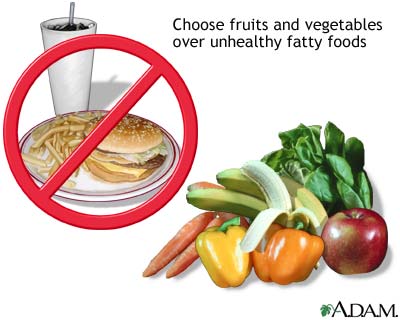
Source: www.theguardian.com
Introduction
The problem of obesity in Malaysia is ongoing. Not only are we outweighing our South East Asian neighbours, but our children are also following suit among their peers as one in every 5 school-going Malaysian children is overweight or obese.
In adults, Body Mass Index is calculated based on a person’s height and weight, and is a reliable indicator of body fat. In children, it is not as straight forward as you think, as children’s percentage of body fat varies according to their sex, age, as well as the stages of their puberty. The American Academy of Paediatrics recommends the use of BMI from the age of 2 years old onwards. The ‘BMI for age percentile’ is used to interpret the figures as it takes into account the child’s sex and age. However , to fully determine if the child has a problem with excess weight, further evaluation needs to be carried out, such as measurement of skin-fold thickness, and also getting the child’s dietary history, physical activity, as well as the family history.
Risk factors
Factors which have been identified to contribute to this problem include lifestyle, dietary choices, genetics, as well as guardian’s general lack of awareness about childhood obesity.
More often than not, both parents and the guardians are working full time jobs, which leaves little time for selecting and preparing healthy food choices for their children. The abundance of fast-food joints offering quick meals which contain high calories but low nutritional value makes it even easier to fall into the trap of unhealthy eating. Children in urban areas especially, are also leading more sedentary lifestyles as activities such as walking to school, playing ‘kejar-kejar’, roller skating / blading and riding the bicycle makes way for the watching more television, playing with Tablets and Play stations. The imbalance between excessive intake and minimal expenditure of energy leads to caloric imbalance or caloric excess specifically.
When children are in caloric excess , the extra calories consumed which are not used by the body will be stored as fat.
Genetics also play a role in determining if a child will become overweight or obese. One study showed that if both parents are obese, there is a 70% chance for their children to also become obese. If only one parent is obese , the chances fall to 50%. If both parents are of normal weight , there is still a 10% chance for the child to develop obesity. Before we blame our genes, it is also important to note that it is not only our DNA at play, but also observed and learned behaviour within a family. In simple words, if parents often make unhealthy food choices and favour sitting in front of the television as their usual pastime, chances are the children will also make similar choices.
Complications
Why the fuss about children being overweight or obese? Isn’t it good that they are growing and getting bigger? Unfortunately bigger is not always better. Many studies have shown the adverse effects of excess weight in children for both the short and long term. Allowing our children to become overweight is like opening a whole Pandora’s Box of unwanted complications which includes liver injury, heart diseases, breathing problems, joint damage, asthma, type 2 Diabetes and may even put them at higher risk of acquiring certain types of cancers in later years. Children who are overweight are also at higher risk of social stigmatism which can lead to poor academic and social development which tends to follow till adulthood.

Source: www.nlm.nih.gov
What can parents do?
Here are some practical suggestions that parents or guardians can adopt to prevent or help your child who is overweight/obese:
Make good diet choices:
- Start early, breastfeeding has been shown to protect against obesity in later years
- Encourage children to eat vegetables , fruits and whole grain
- Choose fish, poultry, lean meats and lentils as protein source
- Limit the intake of saturated fats, sugary drinks and other sweet treats
- Choose healthy preparation of food i.e. steaming, roasting, grilling as opposed to stir or deep frying
- Give reasonable portions and do not force them to eat if they are full (children often know when they have had enough)
- Encourage them to drink plenty of fluids
Help children to be active
- Encourage them to do moderately strenuous physical activity at least 30 minutes a day through games like playing catch, riding a bike or skipping
- Reduce time spent in front of the television TV, playing games or surfing the web to no more than 2 hours a day
Get more information
- Parents can empower themselves by pro-actively seeking more information on healthy lifestyle through books or the internet written and prepared by reliable sources.
Conclusion
Obviously , to prevent or solve this problem, various agencies must work hand in hand with the community to make it easier for families to adopt healthy choices. However, changes can and do begin at home as the family is the nucleus of the society and parents / guardians must lead by examples.
If you feel that your child may be overweight or obese, do seek professional advice from your local health professional. Various studies have shown that obese children tend to become obese adults.
It is best to tackle the issue while they are still young to prevent or reduce the unwanted complication that obesity entails.
Dr. Alya Hamzah is a paediatric medical officer currently working in Sabah and preparing for her final postgraduate exams in paediatrics. She believes that the journey to good health is one to be travelled together by both doctors and patients. Find out more about her in The Team page.
[This article belongs to The Malaysian Medical Gazette. Any republication (online or offline) without written permission from The Malaysian Medical Gazette is prohibited.]
References:
- Balkish Mahadir Naidu BSc, Siti Zuraidah Mahmud MPH, Rashidah Ambak BSc, Syafinaz Mohd Sallehuddin BSc, Hatta Abdul Mutalip BSc, Riyanti Saari MSc,Norhafizah Sahril BSc, Hamizatul Akmal Abdul Hamid BSc. Overweight among primary school age children in Malaysia, 2013. Asia Pac J Clin Nutr. 2013; 22(3):408-15.
- Ogden CL, Carroll MD, Curtin LR, McDowell MA, Tabak CJ, Flegal KM. Prevalence of overweight and obesity in the United States, 1999-2004. JAMA 2006; 295(13):1549–1555
- Mohd Ismail MN, Norimah AK, Poh BK, Nik Shanita S, Nik Mazlan M, Roslee R, Nurrnnajiha N, Wong JE, Nur Zakiah MS, Raduan S. Prevalance and trends of overweight and obesity in two cross-sectional studies of Malaysian children, 2002-2008. MASO Scientific Conference on Obesity; 12-13 August; Kuala Lumpur, Malaysia 2009.

Assalamualaikum dr … I want to ask, if the child is obese at 2 month until 5 y.o n then the bmi become normal until range age 7, is there any possibility that the child become obese later? Thank you in advance..
Wsalam.
Hi Wawa, thank you for your question.
I am not aware if there are any literature stating that there is an increased risk for a previously overweight/obese child to gain excess weight in later years.
What is helpful though is for caretakers to teach kids about healthy lifestyle so that they can continue to maintain a healthy BMI well into adulthood . This than reduces the risk of developing problems such as high blood pressure and diabetes to name a few.
Hope that answers your question.
Thanks for reading!